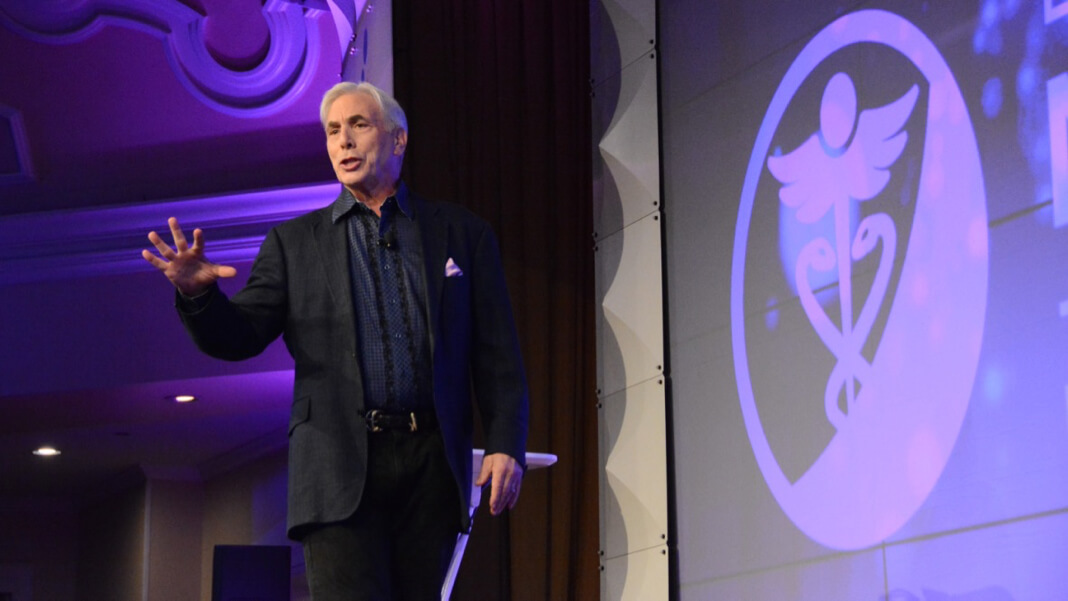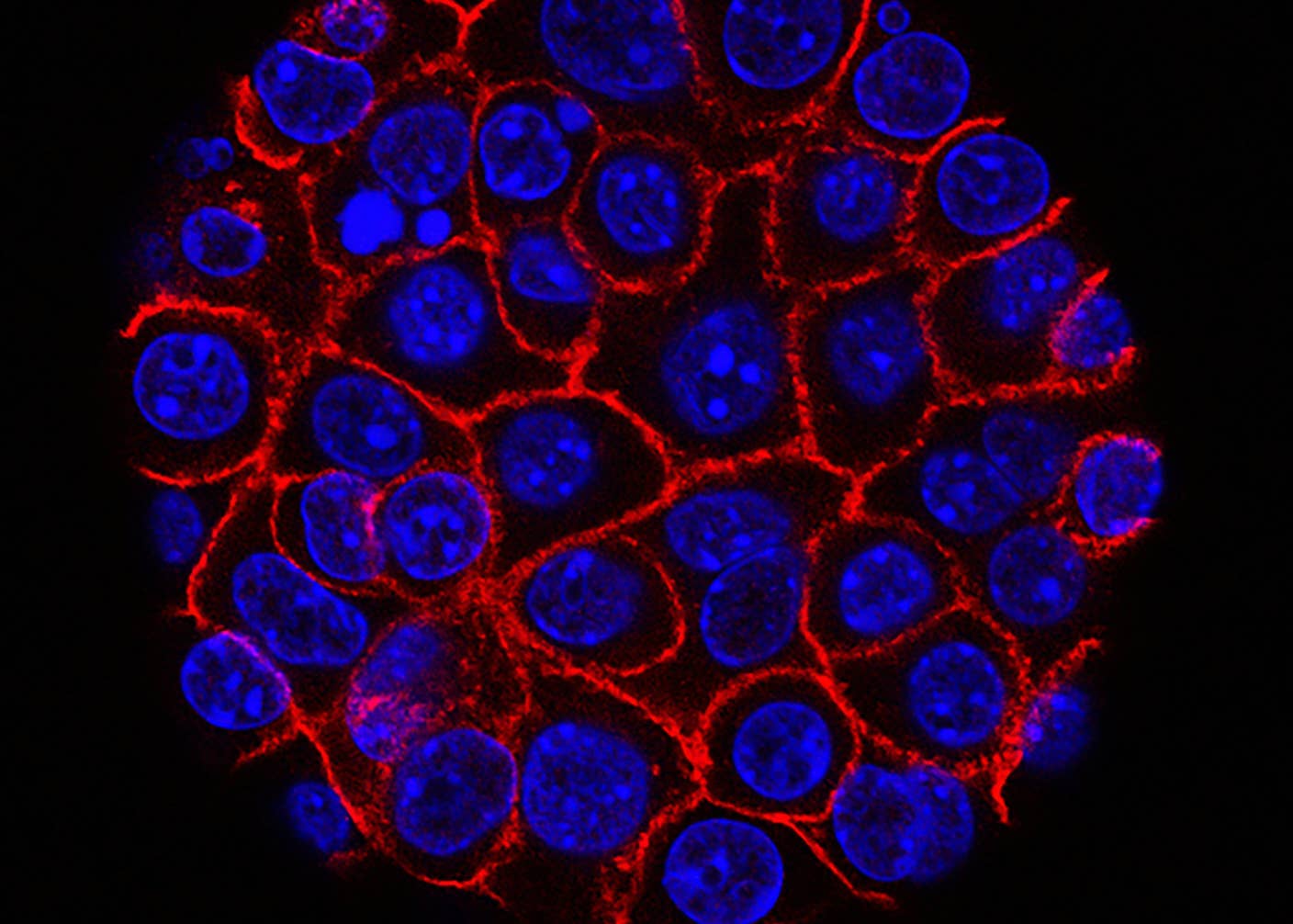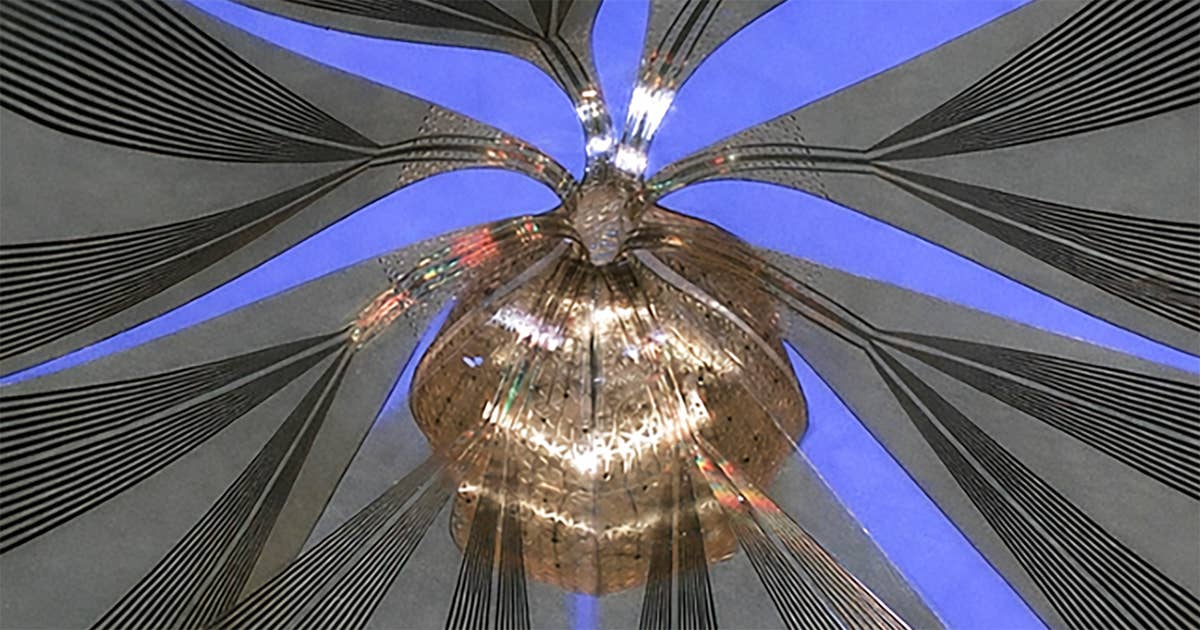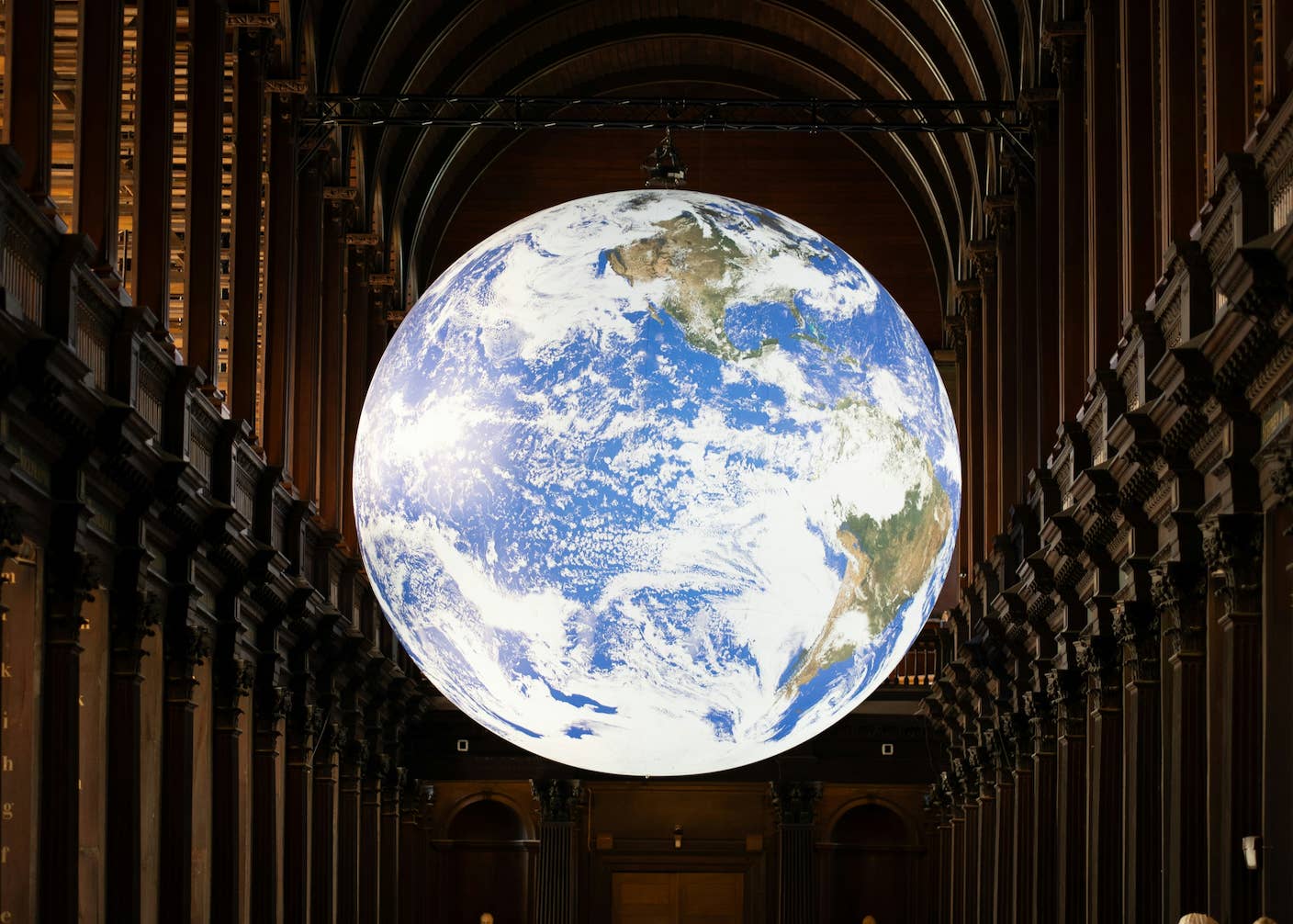How to Think Like Leonardo da Vinci to Unlock Your Creative Potential

Share
“You are gifted with virtually unlimited potential for learning and creativity,” said author Michael Gelb.
In a keynote presentation at Singularity University’s Exponential Medicine Summit in San Diego this week, Gelb shared his insights for maximizing that potential—based on lessons from one of the greatest thinkers of history, Leonardo da Vinci.
Being more like da Vinci, Gelb said, can help us uncover hidden abilities, expand our minds, and accomplish more than we thought we could. Gelb used da Vinci's notebooks, inventions, and artwork to come up with seven da Vincian principles, which he believes are the essential elements of genius.
The principles are detailed in his book How to Think Like Leonardo da Vinci. Here’s the condensed version.

Michael J. Gelb, Pioneer in Creative Thinking and Innovation Leadership, gives a talk at Exponential Medicine.
1. Curiosita: An insatiably curious approach to life. “Da Vinci was the most curious person who ever lived,” Gelb said. “He was curious about everything. He wanted to know truth, beauty, and goodness.”
What can we all do to enliven and enrich our curiosity? Gelb asked the audience where they tend to be physically located when they get their best ideas. Some of the most common replies were in the shower, at the beach, and in the middle of the night. These are all places where we tend to be relaxed and calm. Being overly busy and stressed, on the other hand, doesn’t typically foster curiosity and creativity. Give yourself the time and space to think, wonder, and contemplate.
2. Dimonstratzione: A commitment to test knowledge through experience or demonstrate things in your own experience. Da Vinci signed his name ‘disciple of experience;’ he knew he had to be an original thinker. Back in his day and age, the biggest challenge to independent thinking was the church. “Today our challenge is too much information,” Gelb said. “How do you cut through the tsunami of spam and think for yourself?” He encouraged the audience to view the situations and challenges in their lives from different perspectives and make an effort to filter out the many distractions that surround us.
3. Sensazione: The continual refinement of the senses, especially sight, as the means to clarify experience. “Da Vinci trained his sensory awareness like an Olympic athlete trains their body for competition,” Gelb said. He added that mindfulness is the key to sharpening our senses as we get older. Mindful contemplation of beauty every day is also the secret to enjoying one’s life. “Ask yourself, ‘How can I make my life more beautiful every day?’
Be Part of the Future
Sign up to receive top stories about groundbreaking technologies and visionary thinkers from SingularityHub.


4. Sfumato: A willingness to embrace ambiguity, paradox, and uncertainty. Taking on complex problems means there’s going to be a lot of uncertainty, and sticking too rigidly to established beliefs or norms isn’t likely to help solve those problems. “Highly creative people have an ability to embrace the unknown,” Gelb pointed out. “If you need a definite answer you’re not going to innovate.”
5. Arte/Scienza: Developing the balance between science and art, logic and imagination. Balancing apparent opposites gives us a more complete view of the world and allows us to think with our whole mind rather than just a portion of it. Gelb said elite scientists are highly likely to have a hobby involving arts and crafts; Nobel laureates are 2.8 times more likely to have an artistic pursuit than the average person. It’s all about balance.
6. Corporalita: The cultivation of ambidexterity, fitness, and poise. Similar to balancing the different parts of the mind, we must each balance our own body and mind in order to preserve our health. The choices we make have an effect on our wellness.
7. Connessione: A recognition and appreciation for the connectedness of all things and phenomena; "systems thinking." Be aligned with your highest purpose, your big question. “We suffer from premature organization, which prevents conception,” Gelb said. The key to making progress on a big task, he said, is to generate first, then organize—and that means being aware of the big picture from the outset.
Gelb’s—and da Vinci’s—approach to unlocking human potential is closely aligned with modern-day holistic views of health. However, that doesn’t mean we’ve become skilled at implementing this advice in our lives. We may not all end up painting the next Mona Lisa, but keeping the da Vincian principles in mind each day may help us make the most of our own unique gifts.
Image Credit: Jackie Niam / Shutterstock.com
We are a participant in the Amazon Services LLC Associates Program, an affiliate advertising program designed to provide a means for us to earn fees by linking to Amazon.com and affiliated sites.
Vanessa has been writing about science and technology for eight years and was senior editor at SingularityHub. She's interested in biotechnology and genetic engineering, the nitty-gritty of the renewable energy transition, the roles technology and science play in geopolitics and international development, and countless other topics.
Related Articles

These Supercharged Immune Cells Completely Eliminated Solid Tumors in Mice

New Device Detects Brain Waves in Mini Brains Mimicking Early Human Development

This Week’s Awesome Tech Stories From Around the Web (Through February 28)
What we’re reading